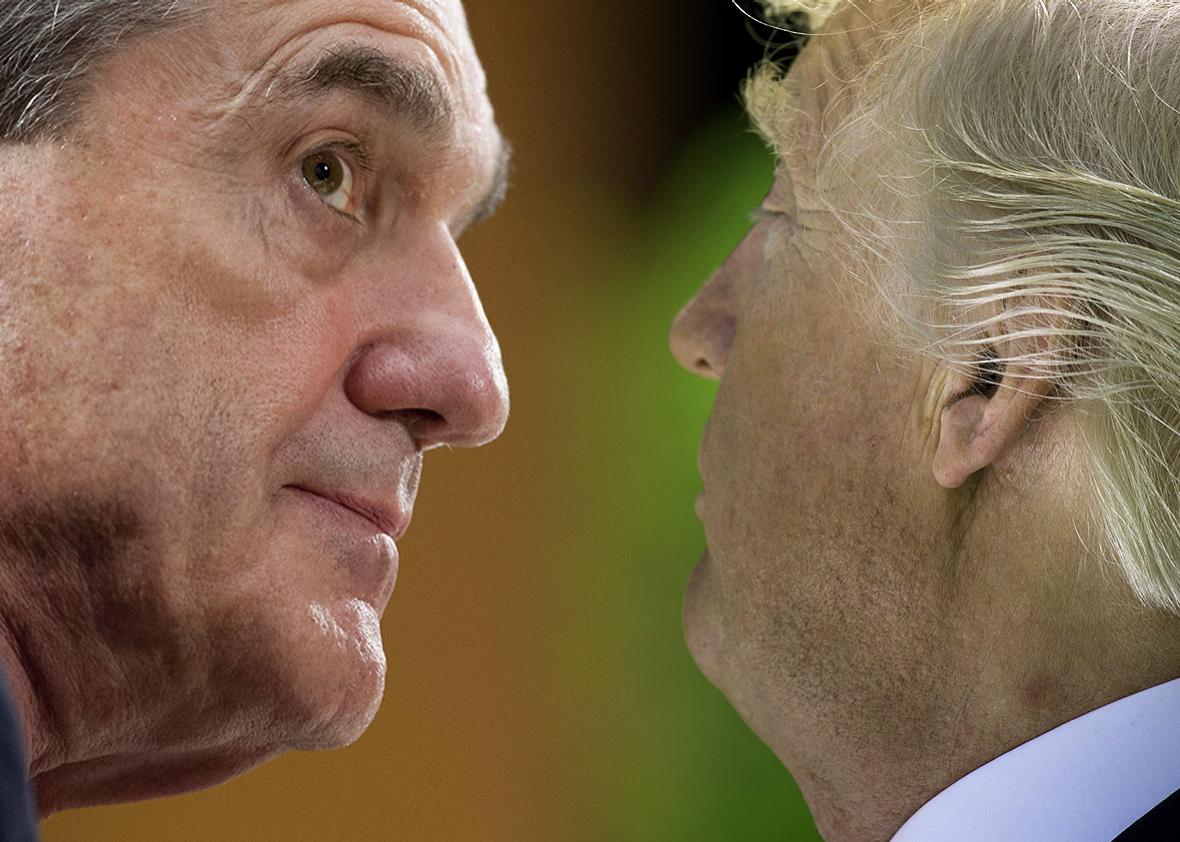On Monday night, we witnessed yet another iteration of the kind of drive-by insanity that would have happened perhaps once every six months in prior administrations and now takes place, like clockwork, every single evening just as we are loading the dinner plates into the dishwasher. As we have been scrupulously trained to do, we collectively freaked out when a Trump surrogate who is also a professional purveyor of fake news told PBS that the president is considering firing Robert Mueller, the special counsel charged with investigating connections between the Trump campaign and Russia.
This five-alarm Monday evening conflagration, which came courtesy of Newsmax CEO and Trump pal Christopher Ruddy, served as the capstone to a growing campaign to cast doubt upon Mueller’s competence and objectivity. Former House Speaker Newt Gingrich, for one, said in a tweet on Monday that he was begin to doubt Mueller’s competence:
After Ruddy told PBS NewsHour the president was “considering, perhaps, terminating the special counsel,” Rep. Adam Schiff of California, the senior Democrat on the House Intelligence Committee, wasted little time in composing his reply.
David Simon, meanwhile, was among the many who argued that this was a line that could not and should not be crossed.
The lawyers, too, took to their bunkers to explain the complicated array of questions surrounding the chain of command at the Department of Justice and whether it would be legal for the president to fire Mueller. The final answer to this vexing question was, as Jack Goldsmith painstakingly laid out on Lawfare, it’s complicated. Of course, by then the rinse cycle on the dishwasher was complete, the White House was walking back claims that Mueller’s job was truly in danger, and Senate Republicans were putting on a theatrical performance of statesmanship, warning the White House that there would be hell to pay if the special counsel got the axe.
By Tuesday morning, there we all were, lying around in metaphorical pools of our own vomit, wondering what all the fuss had been about and why we keep going to the same shitty party every night, if we’re just going to have to acknowledge when we wake up with a start at 5 a.m. that it was all a big joke.
Assuming, as we now do, that it was all a great big nothing—another trial balloon filled with reality TV smoke and vapors leaked and deployed to no end—the question is whether these feints at Nixon-style massacres have any real effect on anything, or if they’re just a pile of tawdry distractions that obscure the work of Senate Republicans plotting to throw 20 million people off their health care plans in the dark of night.
Myself, I think these publicity stunts and trial balloons matter, but not because they effectuate any real changes. As my colleague Leon Neyfakh pointed out Tuesday, Ruddy’s comments “shifted the Overton window: Suddenly we had to talk seriously about the possibility that Trump would try to orchestrate Mueller’s dismissal, either by finding a way to fire him himself or by ordering one of his political appointees to do it for him.” Lawyers sometimes think of this as, in Jack Balkin’s phrasing, moving something from the realm of “off the wall” into the world of “on the wall.” With every destabilizing tweet, trial balloon, and subversive hypothesis, the Trump White House is reminding us that we must be prepared to deploy legal research and analysis to justify anything, and to eventually conclude—as we have collectively done with the theoretical possibility of a Mueller firing—that even if it’s illegal, it’s still possible. We are being taught again and again to realize that laws, statutes, and rules may exist, but that norms and politics are neither immutable nor all that material in Trump’s America. Law can’t save us if there are no norms to back them up. Rinse, lather, repeat.
Trump may not have fired Robert Mueller on Monday night. Indeed, he may never fire Bob Mueller at all. But in a parallel universe, the one called It Can’t Happen Here, that firing has already occurred. We’ve considered it, litigated, braced for it, and acknowledged that it’s both horrifying and also possible. The doing of the actual deed is almost immaterial. In our collective legal consciousness it’s happened or could happen and—absent any pushback from Republicans in Congress—there is nothing we can do to stop it.
Americans tend to engage in exquisitely magical thinking when it comes to questions about the rule of law. Everyone still believes that if something is illegal—profiting off the presidency, leaking information to the Russians, obstructing an FBI investigation, handing out ethics waivers—the president just won’t do it. We are hastily being trained, however, to accept and recognize that Nixon’s old maxim still rings true: When the president does it, or even threatens to do it, that means it’s not illegal. And each time we ask ourselves “can he do that?” we are helping to enshrine the belief that Donald Trump can do whatever it is he wants to do.
